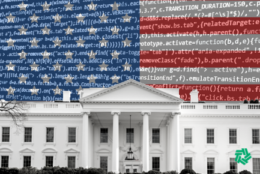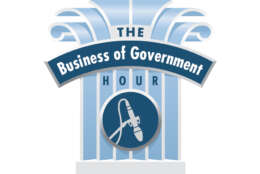technology modernization fund
-
We cover all the issues, but do track what stories are the most popular with readers.
December 28, 2021 -
Former federal technology executives offer their insights of the biggest stories of 2021 and which storylines will carry over in 2022.
December 22, 2021 -
Latest White House executive order underscores customer experience improvement projects already underway.
December 13, 2021 -
Online events are here to stay, and with good reason. But some occasions demand in-person, and it's time already.
December 10, 2021 -
The former White House staffer plans to continue ADI's advocacy for the Technology Modernization Fund, as well as "smart" cybersecurity policies.
November 17, 2021 -
In today's Federal Newscast: A federal appeals court is fast-tracking a legal challenge to the president's vaccine mandate for large, private employers. Hundreds of millions of dollars are headed toward IT modernization. The Secretary of State has named two top diplomats to lead efforts to deal with Havana Syndrome.
November 08, 2021 -
Alan Thomas, the former commissioner of the Federal Acquisition Service at the General Services Administration and a member of the TMF Board, explains how to make sure the Technology Modernization Fund endures.
November 02, 2021 -
The nine appropriations bills that Senate Democrats unveiled Monday are silent on the topic of federal pay, meaning they'll defer to the president's recommendation for a 2.7% raise for employees in 2022.
October 19, 2021 -
In today's Federal Newscast, the Defense Department is seeing troubling new figures in military suicide rates.
October 01, 2021 -
GSA, OPM, Education and DHS received funding for IT modernization projects with a focus on cybersecurity and improving citizen services.
September 30, 2021 -
The House Oversight and Reform Committee on Thursday approved $12 billion for federal electric vehicles as part of the $3.5 trillion budget reconciliation package proposed by Democrats.
September 03, 2021 -
From moving to the cloud to reskilling the IT workforce, the Office of Personnel Management's new chief information officer said he's drawing on a tried and true modernization playbook.
August 31, 2021 -
What is next for IT modernization and digital transformation within the U.S. federal government? Will there be changes to the Technology Modernization Fund (TMF)? How can federal technology transform the way government agencies operate and deliver services. Join host Michael Keegan as he explores these questions and more with Maria Roat, Deputy Federal Chief Information Officer, Office of Management and Budget.
August 16, 2021 -
Since last year, the Labor Department has adjusted its approach to collaboration while the Air Force is using more virtual and augmented reality.
August 13, 2021 -
By any measure, the federal market for information technology is enormous -- close to 8% of the discretionary budget.
August 12, 2021















